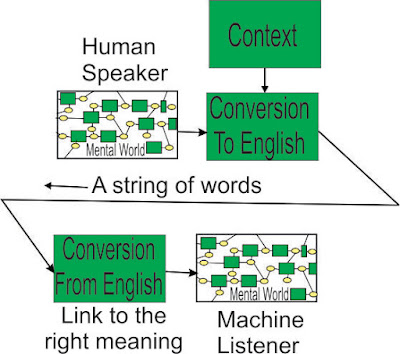AI and Symbolic Logic
Formal logic (also known as symbolic logic) is widely used in mathematical logic. It uses a formal approach to study reasoning: it replaces concrete
expressions with abstract symbols to examine the logical form of arguments independent of their concrete content. In
this sense, it is topic-neutral since it is only concerned with the abstract
structure of arguments and not with their concrete content. (from
Wikipedia).
The meaning of “by a long shot”:
Definition: By a wide margin; indicates a very big difference or disparity -
Wiktionary
So what does “not by a long shot” mean in “it is
not good enough, not by a long shot”.
Does it mean “by a narrow margin”? No, that would be silly.
What it means is “definitely not”.
The reduction of a complex problem into pieces, presumably
by someone who doesn’t understand the problem, and shouldn’t be allowed near
it, is something that needs to be resisted at all costs.
Symbolic logic, which ignores the content, may amuse its users, but is of no use when the problem is more than mathematical (this is why “The Algebraic Mind: Integrating Connectionism and Cognitive Science” was a very poor choice for describing how the Unconscious Mind works, and why Neurosymbolics is doomed to irrelevance). Calculation can be performed at arithmetic operators while completely oblivious to the overal context, or said another way, maths is easy - no double meanings, no nuance, no figurative meanings.
Saying that “LLMs don’t do formal logic” is certainly true,
but symbolic logic doesn’t work on complex problems, and hoping they are
reducible is the wrong approach.
 |
| https://images.app.goo.gl/GNUiXbGqJdbBrmieA |
Making sweeping statements about AI based on the Tower of Hanoi illustrates the paucity of current AI – what about the complex problems?


Comments
Post a Comment